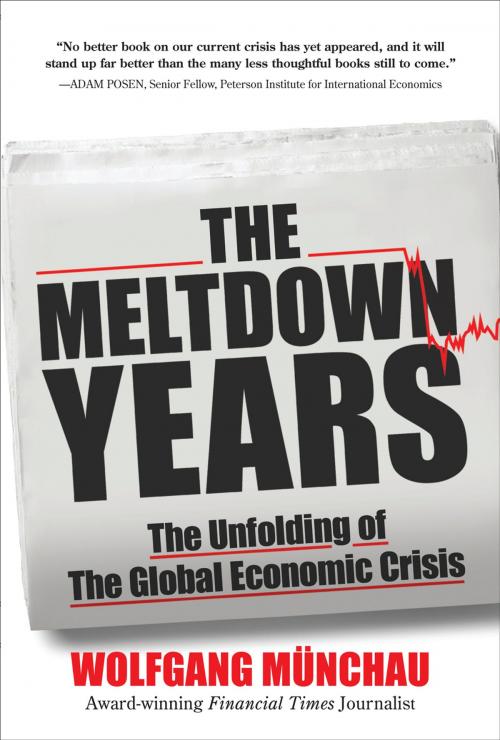The Meltdown Years: The Unfolding of the Global Economic Crisis
Business & Finance, Human Resources & Personnel Management, Training, Finance & Investing, Investments & Securities, Personal Finance| Author: | Wolfgang Munchau | ISBN: | 9780071713689 |
| Publisher: | McGraw-Hill Education | Publication: | October 2, 2009 |
| Imprint: | McGraw-Hill Education | Language: | English |
| Author: | Wolfgang Munchau |
| ISBN: | 9780071713689 |
| Publisher: | McGraw-Hill Education |
| Publication: | October 2, 2009 |
| Imprint: | McGraw-Hill Education |
| Language: | English |
The Meltdown Years offers the most lucid and useful explanation to date about why home values, life savings, job security, and investments around the world are in peril.
Rather than focus on who is to blame, though, author Wolfgang Münchau takes the more practical approach of focusing on what is to blame. The fact that individuals were stupid, greedy, and corrupt should come as no surprise. What’s remarkable is that our world’s financial systems—put in place to help stave off such a crisis—failed so miserably.
What is inherently wrong with the global monetary system? What happened to the regulatory process? What role did the credit market, hedge funds, and investment banks play? These are the types of questions one must answer in order to truly comprehend what caused the meltdown and, more importantly, to understand what must be done to repair it.
Münchau dissects the global financial system, exposing its flaws and weaknesses in the context of the crisis. A decidedly global perspective of the greatest financial crisis of our time, The Meltdown Years examines
- The structure of the world banking system
- Global events that led to financial collapse
- The growth of speculative bubbles
- The descent from financial crisis into full-out recession
Pointing to an unstable global economic system as the root of the problem, the author predicts how long the recession willand illustrates long-term consequences of the meltdown.
“Apportioning [individual] blame for this crisis may be fun,” Münchau writes, “but it is a dead-end road for anyone who seeks an understanding of what happened.” AIG, Alan Greenspan, Fannie Mae, Bear Stearns… Each is portrayed as a villain responsible for the state of the economy. In truth, the blame is much broader and lies much deeper.
The Meltdown Years is required reading for anyone who wants to follow the ongoing debate about economic recovery and understand what the collapse means for the future of financial capitalism.
The Meltdown Years offers the most lucid and useful explanation to date about why home values, life savings, job security, and investments around the world are in peril.
Rather than focus on who is to blame, though, author Wolfgang Münchau takes the more practical approach of focusing on what is to blame. The fact that individuals were stupid, greedy, and corrupt should come as no surprise. What’s remarkable is that our world’s financial systems—put in place to help stave off such a crisis—failed so miserably.
What is inherently wrong with the global monetary system? What happened to the regulatory process? What role did the credit market, hedge funds, and investment banks play? These are the types of questions one must answer in order to truly comprehend what caused the meltdown and, more importantly, to understand what must be done to repair it.
Münchau dissects the global financial system, exposing its flaws and weaknesses in the context of the crisis. A decidedly global perspective of the greatest financial crisis of our time, The Meltdown Years examines
- The structure of the world banking system
- Global events that led to financial collapse
- The growth of speculative bubbles
- The descent from financial crisis into full-out recession
Pointing to an unstable global economic system as the root of the problem, the author predicts how long the recession willand illustrates long-term consequences of the meltdown.
“Apportioning [individual] blame for this crisis may be fun,” Münchau writes, “but it is a dead-end road for anyone who seeks an understanding of what happened.” AIG, Alan Greenspan, Fannie Mae, Bear Stearns… Each is portrayed as a villain responsible for the state of the economy. In truth, the blame is much broader and lies much deeper.
The Meltdown Years is required reading for anyone who wants to follow the ongoing debate about economic recovery and understand what the collapse means for the future of financial capitalism.















